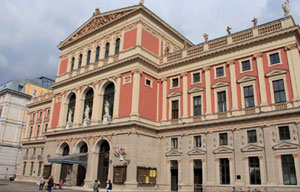The G20 wishlist for China in Cannes
Updated: 2011-11-02 06:47
(Xinhua)
|
|||||||||
BRUSSELS - The stunning call by Greek Prime Minister George Papandreou of a national referendum on aid packages for the debt-laden country made the idea of a China rescue to the European crisis all the more appealling.
After hours of tough negotiations which dragged on to the early hours on Thursday, European leaders had hoped to be joined by heads of other world major economies at the G20 summit this week on an optimistic note.
They had some reasons to: they halved Athens' debt burden, bolster its bailout fund and laid down plans to shore up its banks, in their latest "comprehensive solution" designed to dispel the crisis that has crippled the single-curency zone for nearly two years.
It was the third such comprehensive package this year, each of its predecessors made the debt problem in the euro area even worse.
Nevertheless, the eurozone and markets alike briefly hailed the in-principle success of the European Union (EU).
In an upbeat statement, European Commission President Jose Manuel Barroso said Europe would show its partners in the G20 proposals for a "community way out of this crisis." He added, "We are ready to complete our monetary union with a true economic union."
However, Papandreou took everyone by surprise on Monday, announcing that his country would hold a referendum on the fresh aid package. The news shocked jittery investors and sent global stock markets in a downward spiral.
While Papandreou's political future hangs in the balance, Europe has made no bones about seeking help from China.
Late last week, chief executive of the European Financial Stability Facility (EFSF) Klaus Regling was in Beijing to drum up Chinese interest in investing in special purpose vehicles set up to rescue ailing European economies.
Former European Central Bank (ECB) President Jean-Claude Trichet also said it was "absolutely normal" for the EFSF to approach China as it tries to boost its bailout fund.
While different countries in Europe may have varying expectations from China, one thing they share in common is the hope that China will invest its sizable foreign reserves in Europe.
"China as well as other emerging countries with a surplus can make an important contribution to Europe both financially and in terms of surveillance," Ignazio Angeloni, adviser to the ECB Executive Board, told Xinhua.
Germany, the strongest country in the eurozone, will seek to continue benefiting from relatively low wage levels thanks to the common currency and boost its export surplus, according to professor Gerd Grozinger from the University of Flensburg in Germany.
"So it will woo China to invest in bonds issued by weaker euro states to lower the risk for German citizens," he said.
If the global priority is to restore confidence in financial markets, collective action by the world's largest economies is needed. It would therefore be in China's and the world's interest to commit to stabilizing markets at this critical time, experts said.
"China should engage with Europe and the United States to develop an integrated plan for a sustained economic recovery," said Sean Cleary, founder and executive vice-chairman of the Future World Foundation.
But with the United States busy battling its own sovereign debt woes, Europe cannot rely on its traditional ally for help, say commentators.
"The budgetary situation in the US is worse than that in Europe. They are trying to solve their problems by quantitative easing which only postpones the problem," said Rym Ayadi, senior research fellow at the Centre for European Policy Studies in Brussels.
This gives countries like China more sway in Cannes, Ayadi added.
Dalibor Rohac, deputy director of economic studies at the Legatum Institute in London, told Xinhua that the public in Britian is concerned "about the fact that European leaders are looking for someone to pay the bill for the current mess."
Meanwhile prior to the Cannes Summit, Chinese Vice Finance Minister Zhu Guangyao said Friday the coming G20 summit will not discuss whether its members would capitalize the eurozone bailout package known as the EFSF.
He said the leaders will not discuss buying European bonds at the summit either.
Nevertheless, EU leaders Barroso and Herman Van Rompuy sent a letter to their G20 partners on Monday calling for joint action "in the spirit of common responsibility and common purpose."
Whether this call for a renewed G20 spirit will be answered in Cannes remains to be seen.











